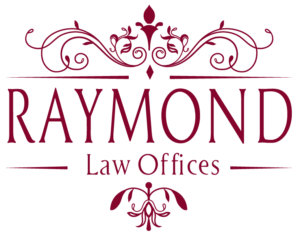BANKRUPTCY SERVICES
For over 24 years our office has focused on providing exemplary bankruptcy representation. We have helped hundreds of individuals, families, and businesses file for bankruptcy relief and eliminate their debts. Together we work to identify the best ways to manage or eliminate our client’s debts.
Bankruptcy Basics:
An individual or a business that is considering bankruptcy should carefully weigh the pros and cons and determine if it is in their best financial interest. Bankruptcy can give a person or a business a potential fresh start from a financial point of view, as most debts are relieved after bankruptcy has been filed.
Chapter 7, or liquidation bankruptcy, means that your “estate” is evaluated and assets may be sold in order to pay off your creditors. A Chapter 13 or other reorganization bankruptcy can also involve the selling of assets, but more often than not, under both Chapter 7 and Chapter 13, you will be able to retain a majority, if not all of your assets after your creditors’ rights have been assessed under the bankruptcy laws.
Bankruptcy laws don’t require you to have an attorney to file for bankruptcy relief. Whether you should hire a bankruptcy attorney depends on the complexity of your case and how comfortable you are filing on your own.* However, even if you have a simple Chapter 7 bankruptcy (meaning your income is below the state median, you have little or no property, and your creditors are not likely to allege fraud against you), you may still want legal representation to help ensure a successful completion of your case and in obtaining a discharge of your debts.
*Keep in mind that bankruptcy laws are complex and even simple Chapter 7 cases require you to complete extensive forms, research exemption laws, and follow all local court rules and procedures. If you are not willing to put in the necessary time and research, you risk losing your nonexempt assets or not getting all of your debts discharged. (Cite: www.nolo.com/legal-encyclopedia/options-if-you-cant-afford-chapter-7-bankruptcy-lawyer.html)
At The Law Offices of Deborah L. Raymond we provide individualized pricing so that each client receives a custom-fit legal experience without overpaying for services that are unwanted or unnecessary. Click HERE to contact our office for a free telephone evaluation.
CHAPTER 7 & 13
Chapter 7
If you are having trouble paying your bills, a Chapter 7 bankruptcy may be a viable solution for you. Chapter 7 bankruptcy is available to people and businesses that meet the legal requirements and qualifications and is commonly known as a “fresh start” or liquidation bankruptcy. Chapter 7 is designed for debtors in financial difficulty who do not have the ability to pay their existing debts. Chapter 7 bankruptcy can relieve you of the responsibility to pay certain debts. Once you have filed for protection under the bankruptcy laws, the law requires that your creditors stop collection activity, including phone calls, garnishment, and foreclosures against you. This is known as the “automatic stay”. Upon completion of your Chapter 7 bankruptcy, your dischargeable debts are discharged and you are no longer legally obligated to pay those debts. Most unsecured debts, such as credit card debts, personal loans, money judgments and certain taxes can be discharged. However, certain other debts are not dischargeable under Chapter 7 bankruptcy; these debts include, but are not limited to, certain taxes, most student loans, alimony, and child support payments. Furthermore, if the debt is secured by property, such as a deed of trust or an automobile loan, or other personal property, you may be required to pay the debt in order to keep the property.
In a Chapter 7 bankruptcy, generally all non-exempt assets belonging to the debtor are liquidated and all funds are distributed by a bankruptcy trustee to the debtor’s creditors. However, very importantly, under state and federal laws, you are entitled to exemptions which can protect certain assets. Generally speaking, the exemptions that you claim will determine which properties will be safe from liquidation by a bankruptcy trustee.
Chapter 13
If you have a regular income and are having trouble meeting your monthly payments, a Chapter 13 bankruptcy may be the solution for you. A Chapter 13 bankruptcy, which is only available to qualified individuals, is commonly known as a wage earner reorganization or debt consolidation bankruptcy. A Chapter 13 bankruptcy is a restructuring of all or part of a debtor’s debts into a more manageable payment plan. In order to qualify for a Chapter 13 bankruptcy you must have regular income and your debts cannot exceed a certain amount of secured debts, such as mortgages and automobile loans, and a certain amount of unsecured debts, such as credit card debts. Once you file a Chapter 13 bankruptcy, the law requires that your creditors stop collection activity, including telephone calls and garnishments against you.
In a Chapter 13 bankruptcy, if the court approves, you will be placed on a payment plan which will pay all or part of your debts with the income that you have remaining after paying your allowed living expenses. It is not necessary to pay off all your debts in their entirety in order for you to successfully complete a Chapter 13 bankruptcy plan. A Chapter 13 bankruptcy can relieve you of your obligation to pay certain debts. After completion of your Chapter 13 plan, which usually takes three to five years, your dischargeable debts are discharged and you are no longer legally obligated to pay them.
“We are a debt relief agency. We help people file for bankruptcy relief under the bankruptcy code.”
